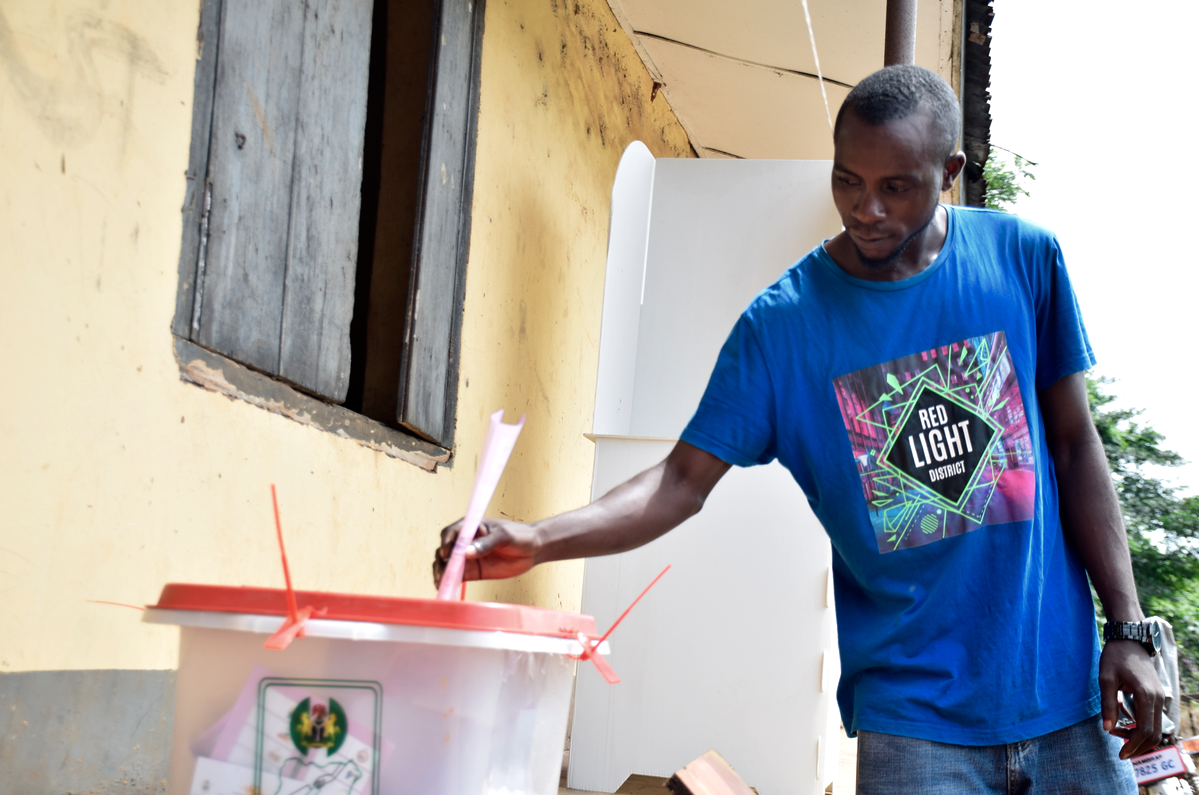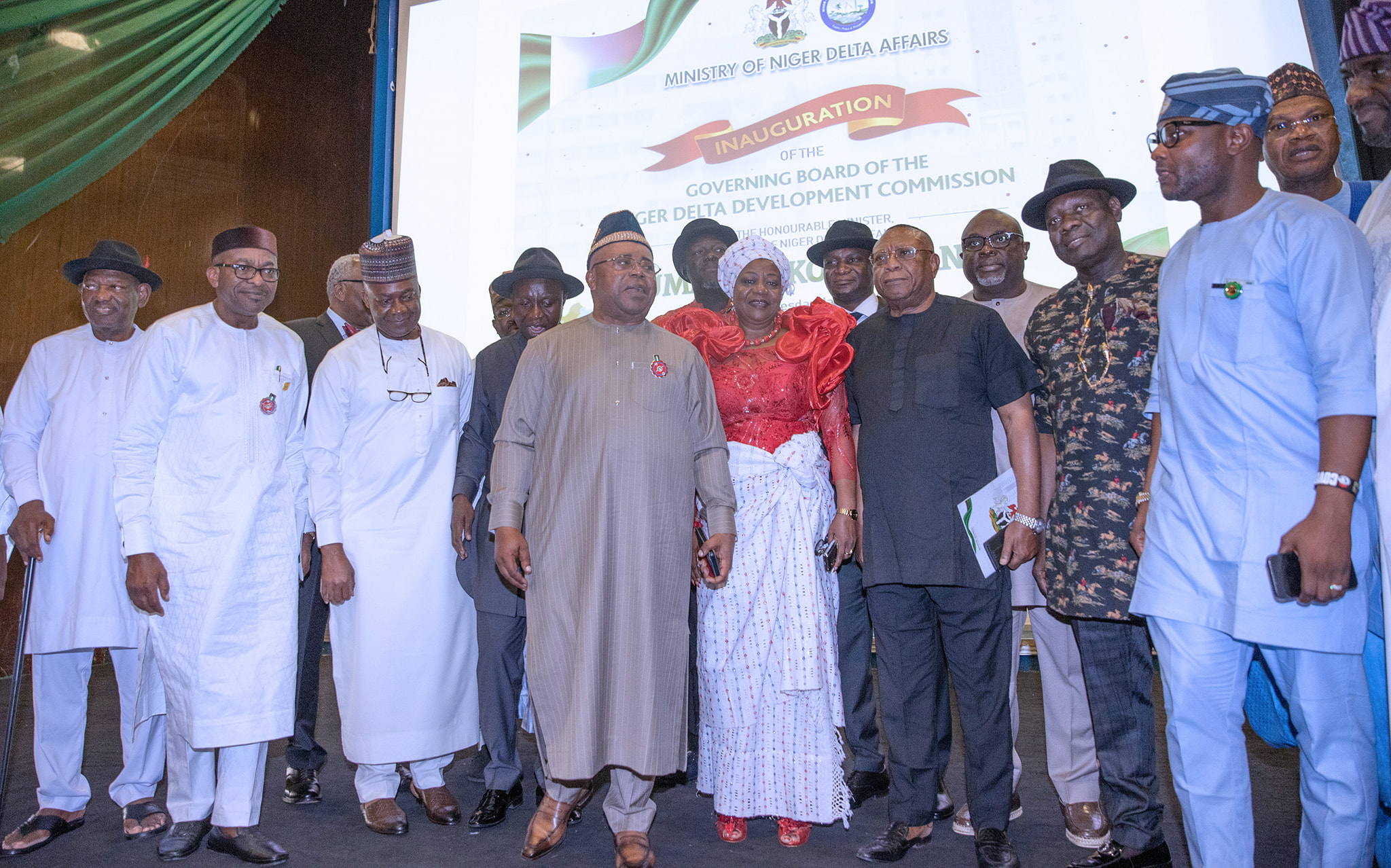The recent 20th National Congress of the ruling Communist Party of China (CPC) from October 16 – 22, 2022, which witnessed the approval and re-election of Xi Jinping as President of Peoples Republic of China and Secretary General/Leader of CPC, necessitates some review of bilateral economic relations between Nigeria and China. That President Xi has an unprecedented third term in office, may portend a continuation of certain economic trends which Nigeria needs to better comprehend, for appropriate strategic policy responses. The concern of this piece is therefore on the increase of Chinese economic presence in Nigeria’s Information and Communications Technology (ICT) and technology related sectors, and appropriate strategic policy options Nigeria can adopt for symbiotic outcomes and enhancement of national security.
Though Nigeria and China have had formal diplomatic relations since February 10, 1971, the last two decades have witnessed an astronomical increase in the volume of bilateral trade, rising from US$384 million in 1998, to US$19.27 billion in 2019. A US$2.4 billion currency swap deal, valid for 3 years, was signed in April 2018 to improve trade relations. For a bit more context, while China has been the country most responsible for imports into Nigeria in the last two years, it has hardly featured among the top-ten export market for Nigeria. Most Chinese economic activities in Nigeria are visible in loans for infrastructural projects. They include the $874 million, 187km Abuja-Kaduna rail; the $1.2 billion, 312km Lagos-Ibadan expressway; the $1.1 billion Kano-Kaduna railway line; and the $600 million airport terminals project in the major cities of Kano, Abuja, Lagos and Port Harcourt.
As it is the desire of every country to ensure advantageous or symbiotic terms at the minimum, in bilateral relations, effort at face value, seems to be made to domesticate some of the technologies deployed by Chinese companies in Nigeria, especially in rail infrastructure. The China Civil Engineering Construction Corporation (CCECC) is constructing a University of Transportation in Katsina state, North West Nigeria, and 150 Nigerians are being trained in China under Chinese government funding, in railway engineering. The current pattern of bilateral interactions therefore has mostly the Ministry of Foreign Affairs, Federal Ministry of Transport, Federal Ministry of Finance and Central Bank of Nigeria (CBN) as the usual government agencies that are present, when bilateral relations between both countries are conducted.
There are however more strategic concerns that require appropriate policy responses from the Nigerian government.
Advertisement
Globally, data and ICT have become about the most valuable resources and industry. In Nigeria, the ICT sector has grown from 3.08 percent of GDP in 2001, to 18.44 percent of GDP in 2022. A lot of this growth in the ICT sector is driven by the telecommunications sector, which has grown since further privatization of the sector, and auction of GSM licenses to private companies in 2001.
Chinese companies such as Huawei and ZTE have in addition to being major players in the provision of lucrative and strategic infrastructure for Nigeria’s ICT and digital economy, are now engaged in the building of new 5G network infrastructure. Opay, a Chinese fintech company has over 18 million registered app users in Nigeria, while Egatee, another Chinese e-commerce company is making strides towards consolidating its position as a leading cross-border logistics, online payment and settlement company in Nigeria.
As countries thrive in international economic relations through appropriate strategy, it is therefore important to recall that the growth of China in technology required a lot of strategy, and somewhat ‘arm-twisting’ policy approaches towards foreign technology firms that operated in China. This move by China entailed forcing foreign companies to share patented information with local joint-venture partners, which enabled the country gain access to a lot of the technology know-how of these foreign tech firms. These foreign companies complied, because of the business benefits in the world’s second largest economy. This arm-twisting policy approaches and means by China contributed significantly to its impressive economic performance, that has seen it lift nearly 800 million people out of poverty in the last 40 years, and the eradication of absolute poverty in the Asian country- an economic miracle. Nigeria in contrast has 133 million people or 63 percent of population, living in multidimensional poverty. This therefore means that Nigeria has to adopt comprehensive and strategic policy approaches, to address poverty and jobless economic growth.
Advertisement
Therefore, what strategic policy options and approaches can Nigeria adopt for a more beneficial relationship with China, especially in ICT?
There has to be an adjustment and better implementation of technology policies and agreements in Nigeria towards ‘technology acclimatization’, in a way that both encourages and compels foreign technology firms to share and domesticate some of their core technologies, especially with select Nigerian firms. As was the case with China, Nigeria has to leverage its position as Africa’s largest economy and most populous country to achieve this goal of technology acclimatization and sharing. Therefore, the acclimatization of technology requires that significant knowledge of these technologies are shared with domestic partners, which also ensure its local applicability, and enhances business outcomes.
Also, representation in bilateral relations and negotiations between Nigeria and China have to go beyond representatives from the Ministries of Foreign Affairs, Finance, Transport, Industry, Trade & Investment. Bilateral relations and negotiations between both countries should also include at front line stage, the Federal Ministry of Science, Technology & Innovation (FMSTI), Federal Ministry of Communications & Digital Economy (FMCDE) as well as the agencies being supervised by both ministries such as the National Office for Technology Acquisition & Promotion (NOTAP), Nigerian Communications Commission (NCC) and National Information Technology Development Agency (NITDA).
If these digital economy ministries and agencies are not integrally involved in bilateral relations, Nigeria will have to make do with agreements that have been signed by officials that do not necessarily have all the required tech knowledge, for beneficial technology related agreements that support technology domestication. The FMSTI, FMCDE, NOTAP, NCC and NITDA will provide the required technical input in support of Nigeria’s quest for a greater stake in the country’s tech sector, and reverse the trend that has seen almost all technology hardware and components such as routers, switches, 5G cables and infrastructure, and telecom masts, being imported.
Advertisement
And there are existing policies that can be leveraged on by government, to attain this goal of technology acclimatization. There is the Nigeria Office for Developing the Indigenous Telecom Sector (NODITS), established in 2021 as part of the ‘National Policy for the Promotion of Indigenous Content in the Nigerian Telecommunications Sector (NPPIC) of 2021, for the development of indigenous content in Nigeria’s telecommunications sector. A provision can be made under the NPPIC for all foreign firms in Nigeria’s telecom sector to pay a certain percentage of earnings to NODITS, as well as share significant parts of their technology, including 5G technology, with domestic partners and indigenous telecom companies such as GLOBACOM, Nigeria’s telecom Second National Operator (SNO), as licensed by NCC in 2002. Fortunately, Huawei, the Chinese telecom firm, is a technical partner of GLOBACOM. Also, this will to a large extent align with the Presidential Order 005 on ‘Planning and Execution of Projects, Promotion of Nigerian Content in Contracts and Science, Engineering and Technology’ and Presidential Executive Order 003 on ‘Support for Local Content Procurements by Ministries, Departments and Agencies of the Federal Government of Nigeria’.
The findings from a 2018 survey conducted by NCC, Nigeria’s telecommunications regulator, provide impetus for new approaches to technology acclimatization. The study shows that only 23 percent of software in use are obtained locally, while 77 percent of software in use are foreign. The negative trend is similar with respect to hardware used by telecom operators, as only 14 percent of hardware come from local companies, while 86 percent of hardware is foreign. For Base Transceiver Stations (BTS) products, a meagre 12 percent is manufactured in Nigeria, while 88 percent is foreign. Even with management staffing that is sometimes non-technical, Nigerians constitute a minority 31 percent of top management staff in the industry, while 69 percent of top management staff are foreign.
This is not a case for arbitrary protectionism, or forced technology transfer, but rather ‘technology acclimatization’, as every major country is expected to implement policies that can enhance its development. Countries are expected to analyze trends, and make informed socio-economic decisions. The strategic role that data and ICT play in the global economy, require appropriate strategic policy responses and continuous planning, from the Nigerian government. And there is the need for such technology acclimatization efforts to commence as quickly as possible. This is because the recent years has seen an increasing number of tech professionals migrating to other countries in large numbers. In the crucial telecommunications sector alone, over 2,000 skilled telecom experts have migrated in 2022, with many more planning to leave. If this trend continues, there will be a scarcity of requisite Nigerian personnel to make the desired compelled technology sharing transfer initiative feasible.
Attaining this objective for increased Nigeria involvement in the ICT sector can lead to a feasible aspiration for Nigeria to play a role in the global semiconductor industry. Individuals such as Prof. Ndubuisi Ekekwe and the Nigeria-based First Atlantic Semiconductors & Microelectronics Ltd (FASMICRO), are viable private platforms that can support policies and efforts of government towards domestic acclimatization of technology.
Advertisement
Achieving better and more beneficial gains from trade with China, are conventional and legitimate foreign policy and economic relations objective, as can be deduced from the December 13-15, 2022 second ‘U.S.-Africa Leaders Summit’. The consensus among experts is that the summit, which took place after the last one in 2014, was designed by the US to counter the growing economic influence of China and Russia in Africa. This can also be glimpsed from the “U.S. Strategy Towards Sub-Saharan Africa” of August 2022. From 2007 to 2017, US trade with Africa declined by 54 percent, while China’s trade with Africa grew by 220 percent. In 2020, China had business deals with Africa worth $735 billion with 623 Chinese businesses, while the US had deals worth $22 billion from 80 countries. At last count, there are 46 port projects by China in the continent, compared to nil from the US. There has also been a Russia-Africa Summit, where Russia made commitments to Africa for nuclear plants and fighter jets.
The US is also making similar efforts in the field of ICT, as a means of securing tech advantage in its relationship with China. This is being done through ‘The CHIPS and Science Act’ of 2022, worth $280 billion, which provides significant funding for tech companies. Companies that receive funding or support under the Act, are however prohibited from expanding semiconductor manufacturing in China, or any countries that pose a threat to US national security.
Advertisement
There is also the ‘Chip 4 Alliance’ proposed by the U.S. government in March 2022, that aims to bring together three of the strongest semiconductor giants in Asia– Taiwan, Japan, and South Korea, to weaken China’s growing dominance not just in the semiconductor industry, but other areas of critical importance. The technology dominance of the 5G market globally by Chinese companies such as Huawei, influenced these US policy efforts, while Canada and the United Kingdom are some of the major countries that have placed bans on 5G operations by Chinese companies. Therefore, if the US can make concerted diplomatic efforts to improve trade relations when compared to China and Russia, Nigeria should make similar efforts in improving the terms of its economic relations with China, especially in the field of technology.
In conclusion and as previously stated, China has forced foreign companies operating in China to share patented information with local joint-venture partners. These foreign companies complied, because of the business benefits in the world second largest economy. As Africa’s largest economy and most populous country, Nigeria has similar leverage, which can be deployed for technology acclimatization, especially as China comes increasingly under pressure from the US government that seeks to displace Chinese influence in Africa. This much is evident in the ‘US Strategy Towards Sub-Saharan Africa’ of 2022, and US-Africa Leaders Summit of December 2022. Nigeria should therefore seize the diplomatic moment, with NOTAP, NCC, GLOBACOM and FASMICRO playing key roles and being the beneficial Nigerian tech companies.
Advertisement
This policy approach can be implemented without violating World Trade Organisation (WTO) rules that prohibit forced technology transfers as a tradeoff for granting access to market
Taken together, the pressures from the US on China in Africa, and in the field of semiconductor technology, the restrictions on Chinese tech companies in major countries such as Canada and the United Kingdom, as well as the desire by China to maintain its lead in 5G provision for Africa’s largest economy, provide a ‘diplomatic moment’ for Nigeria to renegotiate terms in ICT development, with NOTAP and identified Nigerian stakeholders playing key roles in ensuring the acclimatization of technology.
Advertisement
As China now plays a key role in Nigeria’s ICT sector, bilateral relations between Nigeria and China should have adequate representation and input from the relevant ICT and digital economy agencies in Nigeria such as FMSTI, FMCDE, NOTAP, NCC and NITDA, for the attainment of beneficial policies and agreements. Indigenous companies such as GLOBACOM and FASMICRO can also play major roles in the technology acclimatization process, which will all contribute sustainably towards developing Nigeria’s tech sector, enhancing national security, and promoting socio-economic development.
Uwanaka, a policy analyst, writes through [email protected]
Views expressed by contributors are strictly personal and not of TheCable.
Add a comment







